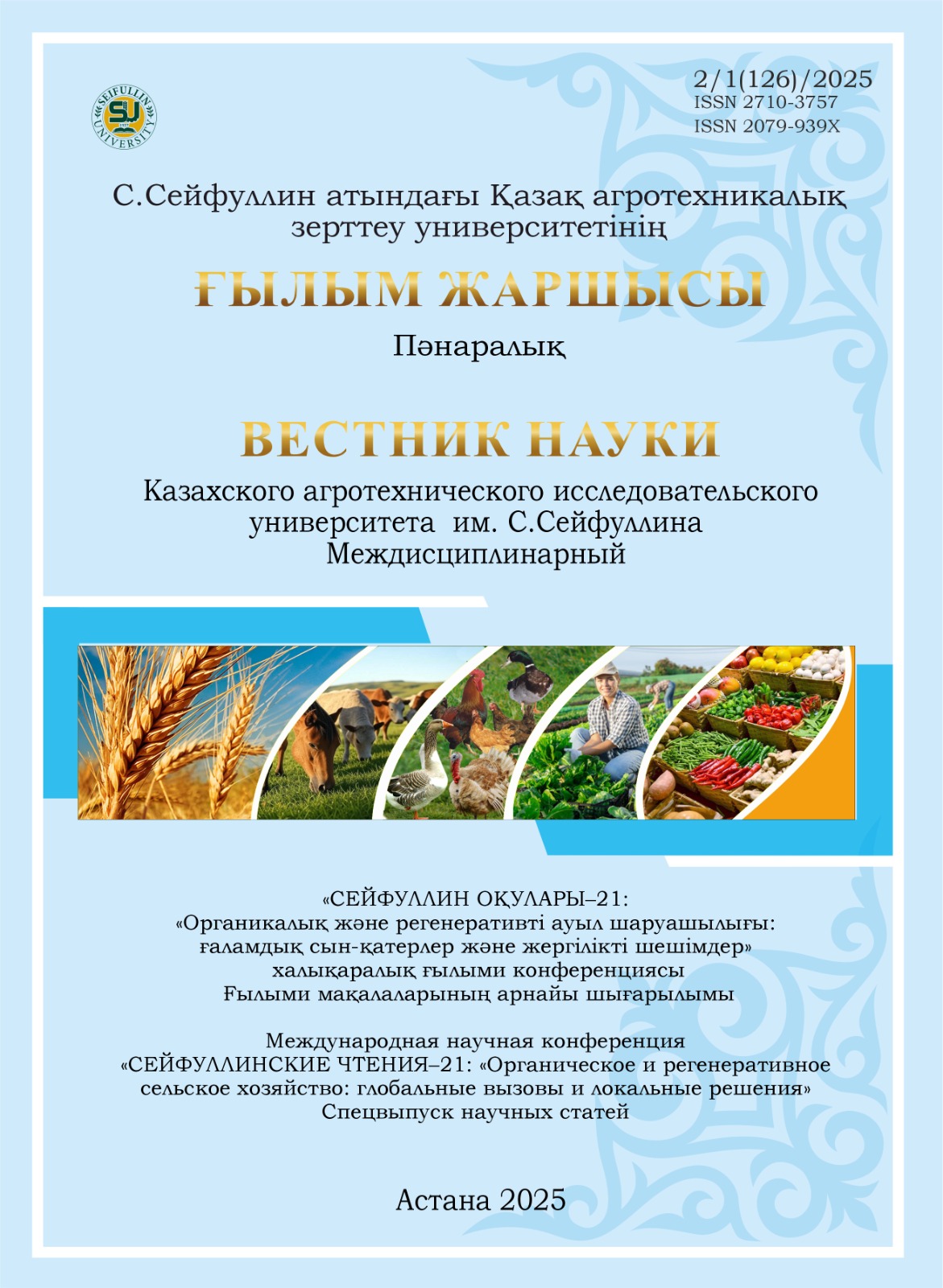Effect of mung bean seed treatment before planting on germination and some vegetative growth indicators
DOI:
https://doi.org/10.51452/kazatu.2025.2/1(126).1916Keywords:
Mung bean; mash enzyme; priming; saline solution; vegetative growth; germination; priming.Abstract
Background and Aim. The mung bean (Vigna radiata, also known as Mash) is a summer crop. Its importance in human nutrition is highlighted by the fact that its seeds contain a high con-centration of protein and are rich in the amino acid lysine, as well as other compounds such as car bohydrates, oils, vitamins, and various secondary metabolites. This experiment was conducted to determine the effect of three seed soaking treatments (tap water, mash enzyme solution, and saline solution), in addition to a comparison treatment (control) without soaking, on germination and se-lected vegetative growth indicators of mung bean plants.
Materials and Methods. A germination experiment was conducted using Petri dishes, fol-lowed by a pot experiment in the field with containers filled with a 1:1 mixture of soil and peat moss. The seeds were soaked for 12 hours before sowing. Treatments included soaking in tap water, mash enzyme solution, and 1% NaCl saline solution, along with an unsoaked control group. Germination traits and vegetative growth parameters were recorded. Data were analyzed statistically using the Statistical Package for the Social Sciences (SPSS) and significant differences between means were determined using Duncan’s Multiple Range Test at the 5% significance level.
Results. The laboratory results showed that soaking seeds in tap water produced the highest germination rate and plumule length. Most treatments did not differ significantly from each other, except for the saline solution, which significantly reduced germination percentage. In the pot exper-iment, soaking seeds in tap water and a mash enzyme solution resulted in superior performance across all vegetative growth parameters, including plant height, root length, fresh and dry weight of shoot and root, leaf length and width, and chlorophyll content.
Conclusion. Soaking mung bean seeds in tap water or mash enzyme solution significantly improved germination and vegetative growth parameters, while saline solution had a negative effect on these parameters. These findings confirm the effectiveness of natural priming treatments in en-hancing plant performance.

